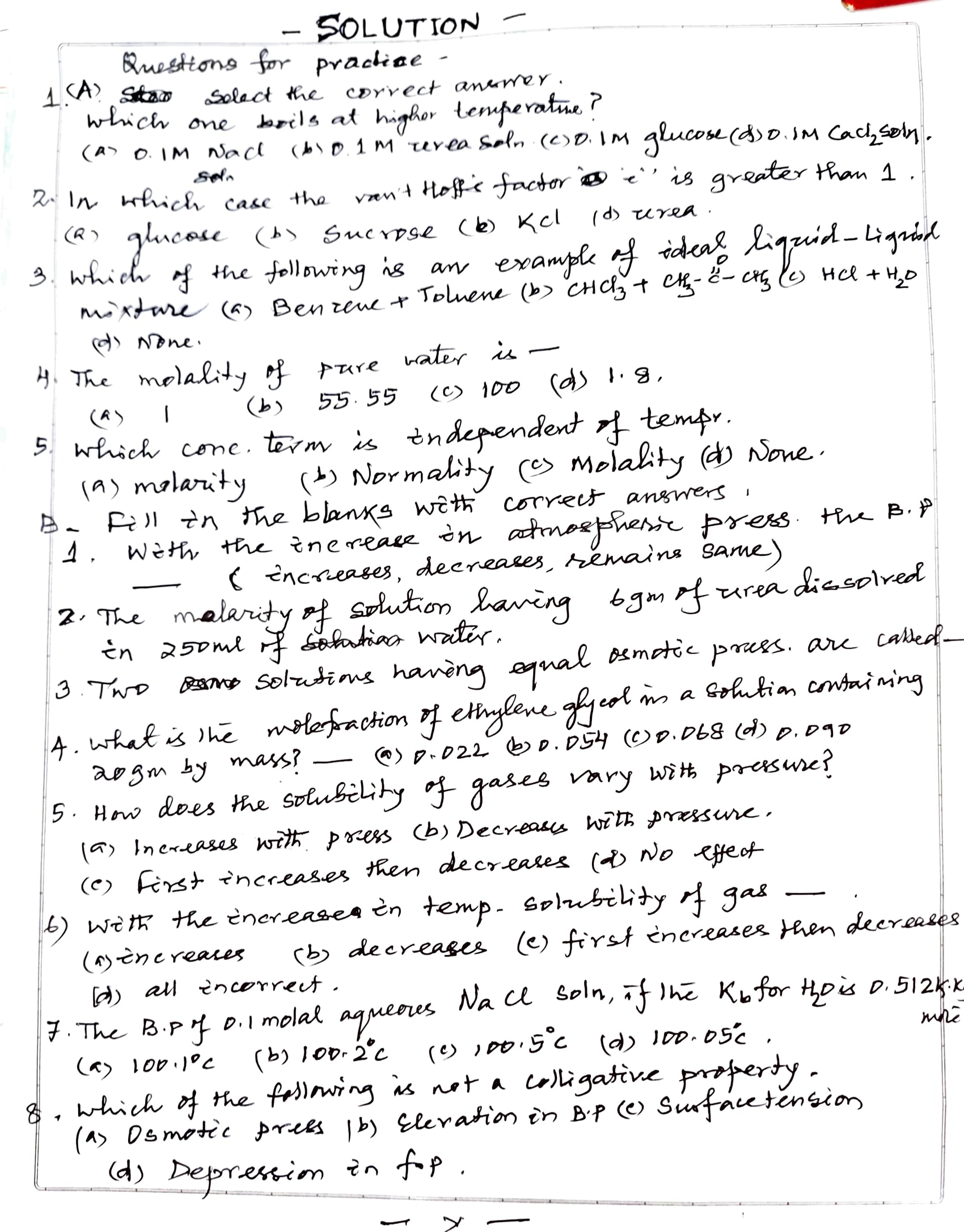Which one boils at higher temperature? 1. 0.1M NaCl 2. 0.1M urea solution 3. 0.1M glucose 4. 0.1M CaCl2. In which case the van 'Hoff factor i is greater than 1? 1. glucose 2. sucro... Which one boils at higher temperature? 1. 0.1M NaCl 2. 0.1M urea solution 3. 0.1M glucose 4. 0.1M CaCl2. In which case the van 'Hoff factor i is greater than 1? 1. glucose 2. sucrose 3. KCl 4. urea. Which of the following is an example of ideal liquid-liquid mixture? 1. Benzene + Toluene 2. CHCl3 + C6H5Br 3. HCl + H2O. The molarity of pure water is 1? 1. 1 2. 55.55 3. 100 4. 1.8. Which conc. term is independent of temp? 1. molarity 2. normality 3. molality 4. none. Fill in the blanks with correct answers: With the increase in atmospheric pressure, the B.P. of solution having 5gm of urea dissolved in 250ml of solution water?. The molarity of solution having 5gm of urea dissolved in 250ml of solution water?. Two same solutions having equal osmotic pressure are called. What is the molar fraction of ethylene glycol in a solution containing 25gm by mass? 1. 0.022 2. 0.054 3. 0.068 4. 0.090. How does the solubility of gases vary with pressure? 1. increases with pressure 2. decreases with pressure 3. first increases then decreases 4. no effect. With the increase in temp, solubility of gas: 1. increases 2. decreases 3. first increases then decreases. The B.P. of 1 molal aqueous NaCl soln, if the Kb for H2O is 0.512K kg mol-1? 1. 100.1°C 2. 100.2°C 3. 100.5°C 4. 100.056°C. Which of the following is not a colligative property? 1. Osmotic pressure 2. elevation in B.P. 3. surfactension 4. depression in f.p.

Understand the Problem
The question is a series of chemistry practice questions covering topics such as molarity, ideal solutions, and colligative properties. It asks for selecting correct answers related to these topics.
Answer
Answer for screen readers
AI-generated content may contain errors. Please verify critical information